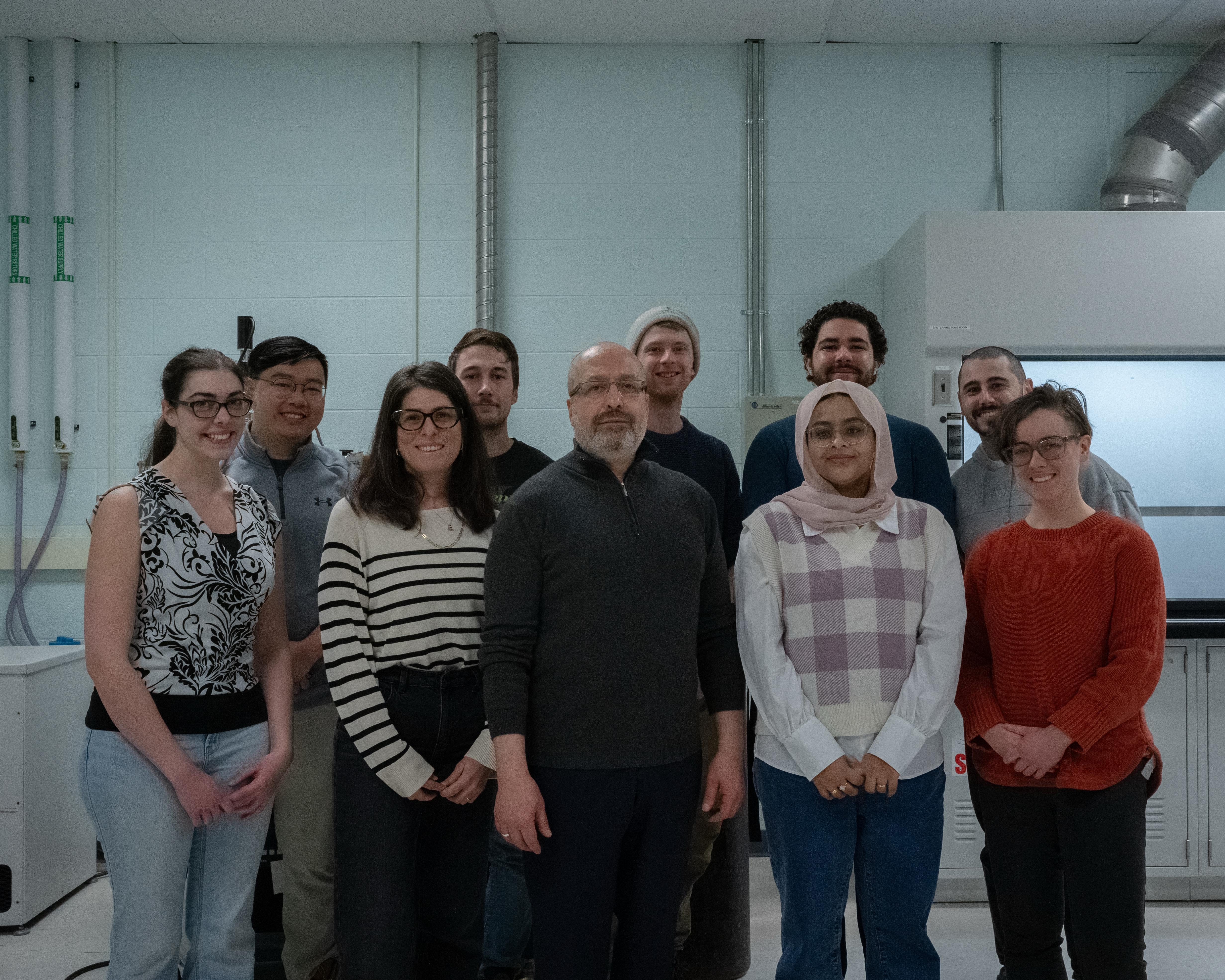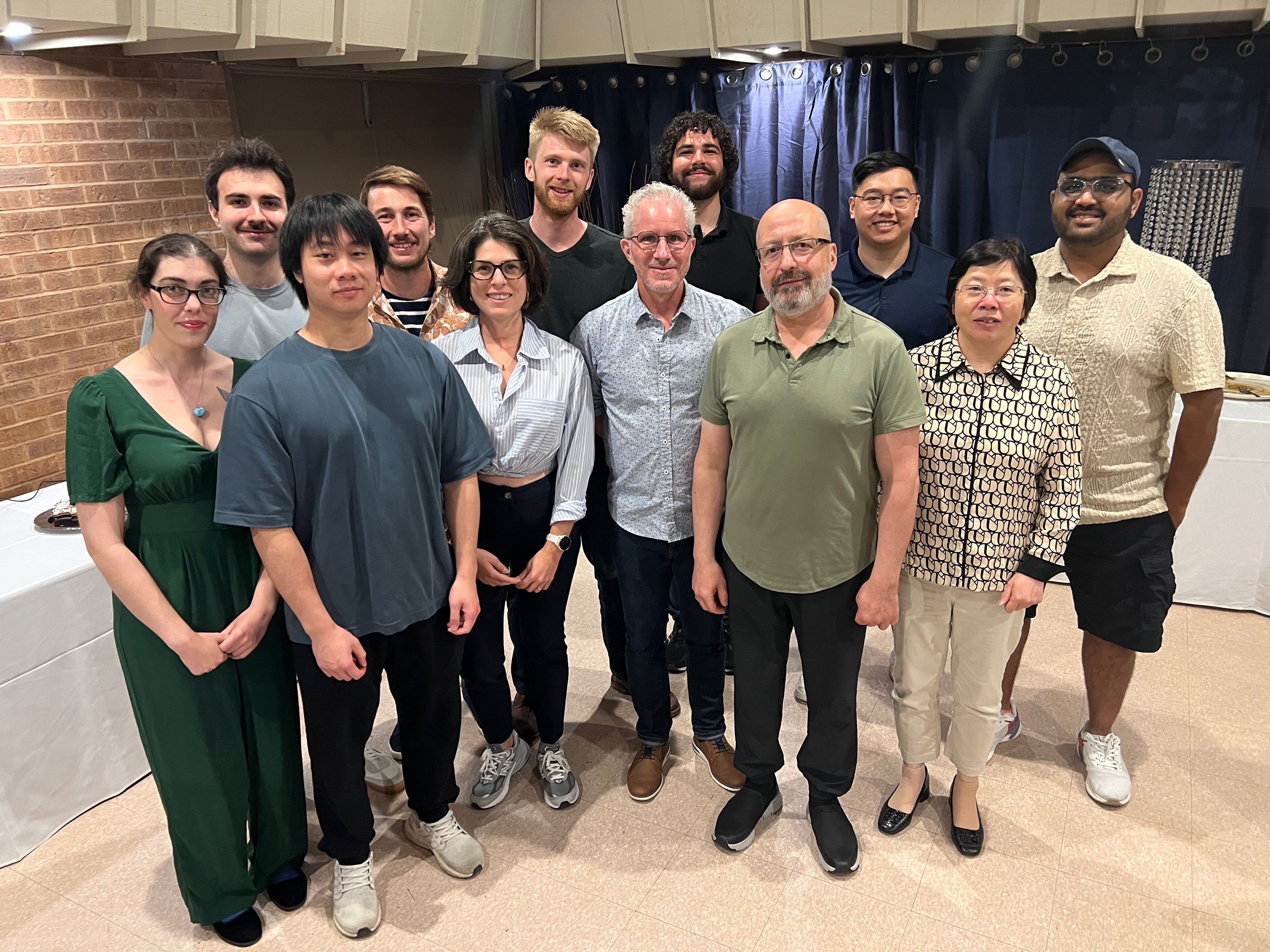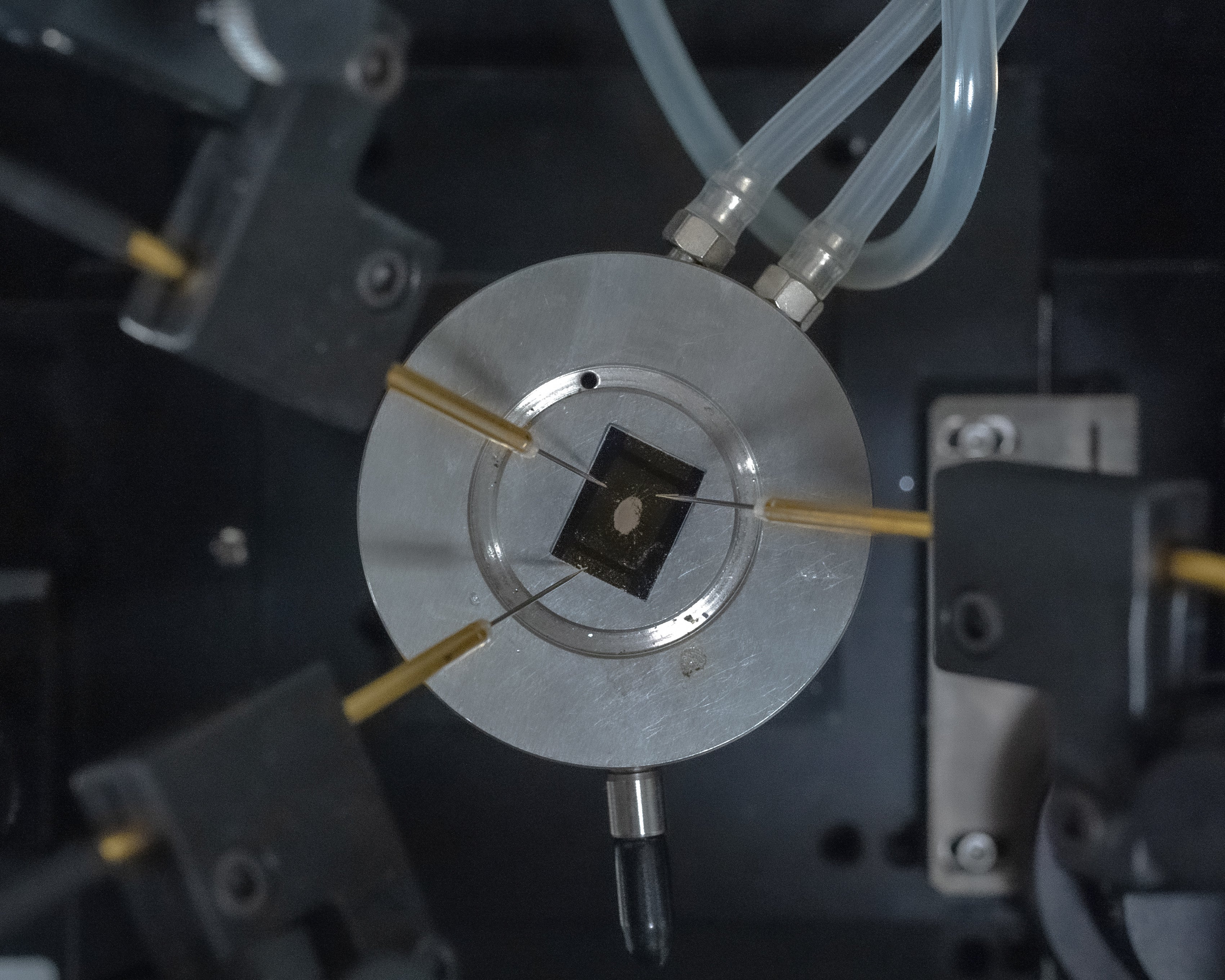The Nano and Micro Systems Lab (NMSL) mission is to conduct various researches in advanced opto-nanoelectromechanical and photoelectrochemical systems sensing technologies driven by the potential impacts on society and the environment.
The group objective is to address issues in overall sensing technologies advancement while contributing to fundamental sciences.
NMSL engaged in many areas of nanotechnology and microsystems, with a particular focus on devices and systems, nanofabrication, functionalization, testing, and packaging.


Ongoing Research Projects
Built-In Packaging for Single Terminal Devices
In this work, we demonstrated a package-less single-terminal device not requiring conventional interconnection elements and boards. Eliminating these requirements simplifies the operation of micro and nano actuators. In fact, the idea is compatible with the current sensor technology.

Built-In Packaging for Two Terminal Devices
In this research, we demonstrated the built-in packaged two-terminal device not requiring conventional interconnection elements and boards. Eliminating these requirements improves the performance of MIM-diodes. In fact, the idea is compatible with the current sensor technology and it can simplify the sensor packaging and operation.

ManTech - Guelph Water Quality Sensing Partnership
Our team is excited to be working on new water sensor technologies in partnership with ManTech Inc from Guelph! We will be improving existing technologies and developing new materials for the photo-electrochemical oxidation of organics. This Photo-electrochemical Oxygen detector (PeCOD) technology will utilize thin-films, UV-excitation, and develop metamaterial solutions to improve the performance and accessibility of this critical aspect of water quality assessment.



Nano-FET Resonator Project
We aim to build the world’s most sensitive and versatile sensor in practical conditions, i.e. atmospheric pressure and ambient temperature. A novel dual-sensing approach is proposed by collecting information from both mechanical and electrical domains. In the electrical domain, information will be collected with charges from the Nanostructure Field Effect Transistor (nano-FET) property and in the mechanical domain with masses from the NEMS based Resonator property of the device.

Advanced MIM Diode Project
We are developing high-performance Metal-Insulator-Metal (MIM) diodes for terahertz applications, focusing on low resistance and high responsivity. By integrating hydrogen-doped TiOx insulators, our diodes achieve efficient quantum tunneling for ultra-fast rectification. This innovation enables next-generation THz detectors, wireless communications, and energy harvesting at room temperature and atmospheric pressure.
Manufacturing of quantum-tunneling MIM nanodiodes via rapid atmospheric CVD in terahertz band

Nanoplasmonic/FET Portable Biosensing Platform
Researchers at the University of Waterloo are using the extraordinary optical properties of plasmonic nanomaterials and nanocomposites to develop a nanoplasmonic/field-effect transistor (FET) portable biosensor. This innovative design consists of a FET biosensor, light source, and USB-enabled electronics readout unit, which aims to enhance biosensors’ sensitivity, limit of detection, lower cost, improve reusability, and detect small molecules. The results of their recent research on rGO@AuNPs nanoplasmonic biosensors are promising for next-generation early cancer diagnosis platforms.

Graphene Field-effect Transistor (FET) Biosensors:
This research focuses on developing graphene-based field-effect transistor (FET) biosensors that incorporate various graphene-nanomaterial structures for ultra-sensitive and rapid detection. We employ different bioreceptors, such as ssDNA, antibodies, and aptamers, for highly specific and selective detection of biomarkers and pathogens. Our biosensors have demonstrated ultra-low detection limits for SARS-CoV-2, E. coli, and heart attack BNP biomarkers. This work paves the way for next-generation real-time biosensing technologies with applications in point-of-care diagnostics, environmental monitoring, and personalized healthcare.
Papers:
Electronic Detection of SARS-CoV-2 N-Protein Before the Onset of Symptoms
An ultrasensitive heart-failure BNP biosensor using B/N co-doped graphene oxide gel FET
Rapid, Selective, and Ultra-Sensitive Field Effect Transistor-Based Detection of Escherichia coli


A FET Biosensor for Early Lyme Disease Detection Vince Cabrera

News
NEMS and 2D quantum resonators, THz diodes and neuromorphic sensors and information processors
This collection focuses on nano-opto-electro-mechanical systems devices such as NEMS resonators and MIM-THz diodes for IoT and AI, and neuromorphic computing and sensing applications along with 2D quantum resonators for atto-level and beyond sensing and measurements for biotechnology, aeronautical and space and undersea areas.
Keywords: NEMS resonators, MIM-THz diodes, neuromorphic computing and sensing, 2D quantum resonators, quantum-nano-biotechnology, sensors for space and undersea, AI, IoT, sensing beyond atto-level.
Materials Webinar | Defective Functional Materials for AI Chips, Next Generation Sensors and Terahertz Electronics
This webinar explores the cutting-edge frontier of Defective Functional Materials for AI Chips, Next-Generation Sensors, and Terahertz Electronics. This rapidly evolving field is reshaping the future of intelligent systems, sensing technologies, and ultra-high-frequency electronics.
The discussions featured in this session aim to demonstrate how defects in functional materials, often seen as limitations, can be harnessed to enhance performance in AI chips, unlock new sensing modalities, and push the boundaries of terahertz electronics. We’ll explore how these innovations are enabling smarter, faster, and more resilient technologies across disciplines.
Chair: Prof. Dr. Mustafa Yavuz
MEMS and NEMS Sensors Webinar
The webinar of Sensors’ Special Issue, “MEMS and NEMS Sensors”, is open to all who enjoy conducting research on the topic of innovative ideas for nano/micro-electro-mechanical and optical system sensors or are passionate about learning about this exciting and competitive research area. The webinar speakers will present new findings, from basic to translational research.






